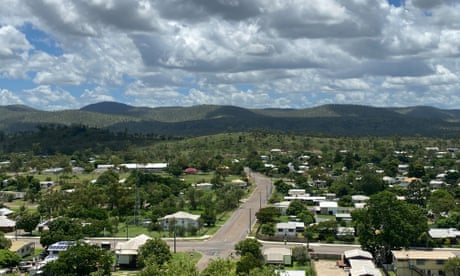- by foxnews
- 08 Apr 2025
Experts sceptical of Shine Energy’s proposed ‘flexible’ coal power station
Experts sceptical of Shine Energy’s proposed ‘flexible’ coal power station
- by theguardian
- 14 Feb 2022
- in news

A proposed new coal-fired power station at Collinsville in north Queensland is now being pitched as a "flexible" firming project - a pivot that neatly aligns with federal government moves to bankroll such plans.
The federal government controversially gave Shine Energy $3.3m in 2020 to conduct a feasibility study into the Collinsville plant. In a press release announcing the grant, government backbencher Michelle Landry said the generator would provide "affordable baseload power".
But information flyers distributed by the company in Collinsville appear to show the company has realised baseload coal plants are no longer viable, given the rapid proliferation of solar and other renewables in the energy grid.
Shine Energy is now using the term "flexible HELE" (high-efficiency, low-emissions) technology to describe the proposed plant.
The Shine Energy flyer said: "The project is being designed to ramp up and down and be placed on standby as directed by the Australian Energy Market Operator."
"[The pre-feasibility study found] the increasing level of renewable generation, and in particular solar generation, has changed the role of coal power plants from baseload to load-following."
Energy analysts said the assessment of the market is essentially correct - that the grid requires some firming capacity to support large-scale renewable generation at times when renewables are not productive.
But they said coal is the least flexible technology and the heaviest emitter.
"It's technically possible [for a coal power station to be more flexible], but the ramp rate of a coal plant is a snail's pace compared to gas peaking, and that's snail's pace compared to a battery," said Tim Buckley, a market analyst and the director of Climate Energy Finance.
"They may be able to build in some flexibility, but you're talking [about] a really expensive piece of kit."
Buckley said that because of the infrequent and inconsistent need for ramping power and the rapid uptake of cheaper renewables, the sort of flexible coal plant described by Shine Energy was "totally unbankable [without] massive ongoing government subsidies and a massive ongoing exemption from carbon pricing".
While analysts say it is extremely unlikely a flexible coal plant would generate private investment, particularly given the shift in global finance away from coal, there remains the prospect that Collinsville could be built with sufficient federal government support.
The government has cited the need to provide firming capacity as justification to subsidise otherwise unviable projects, like the $600m decision to build the Kurri Kurri gas project, which only expects to run at 2% of its capacity each year.
There are some signs the federal government may also seek to subsidise coal to provide firming capacity.
The Shine Energy Collinsville project has already been the subject of questions after it was invited to apply for a $3.3m federal grant for a feasibility study two days after being announced as the recipient. The National Audit Office raised concern about parts of that grant process.
Shine Energy's pitch leans heavily on arguments the coal plant will support the uptake of renewables, given the inflexibility of the national energy market's existing coal power stations.
The company claims its technology would create 25% less emissions than the average coal-fired power station in the NEM fleet. But both Buckley and the director of the climate and energy program at the Australia Institute, Richie Merzian, say that would still result in a relatively dirty power station.
"This plant will be about as carbon-intensive as the average plant in Japan. It's still 100% more carbon intensive [than] any wind or solar project."
The company also makes unfounded claims that coal can be burned with "zero emissions" via future advances in carbon capture, storage and utilisation technology. Such technologies remain largely ineffective and unproven.
"Despite $4bn in government commitments for carbon capture and storage in the last 20 years there isn't a single 'clean coal' project in operation in Australia," Merzian said.
"It is not just wrong but dangerous to claim coal power can be 'zero emissions'. The first step in addressing climate change is to stop growing the problem and coal is hands down the single largest source of greenhouse gas emissions."
Shine Energy chief executive, Ashley Dodd, did not address specific questions. He said: "We are proud Australian Birriah/Widi Traditional Owners committed to economic sovereignty for our people with an energy project that will provide benefit for the nation.
"It is a shame the anti-nation-state globalist outlets like the Guardian are constantly attacking an Australian Birriah/Widi Traditional Owner-driven project like this."
The information given to Collinsville locals suggests the proposed plant would not be operational until 2026.
- by foxnews
- descember 09, 2016
Ancient settlement reveals remains of 1,800-year-old dog, baffling experts: 'Preserved quite well'
Archaeologists have recently unearthed the remarkably well-preserved remains of a dog from ancient Rome, shedding light on the widespread practice of ritual sacrifice in antiquity.
read more


